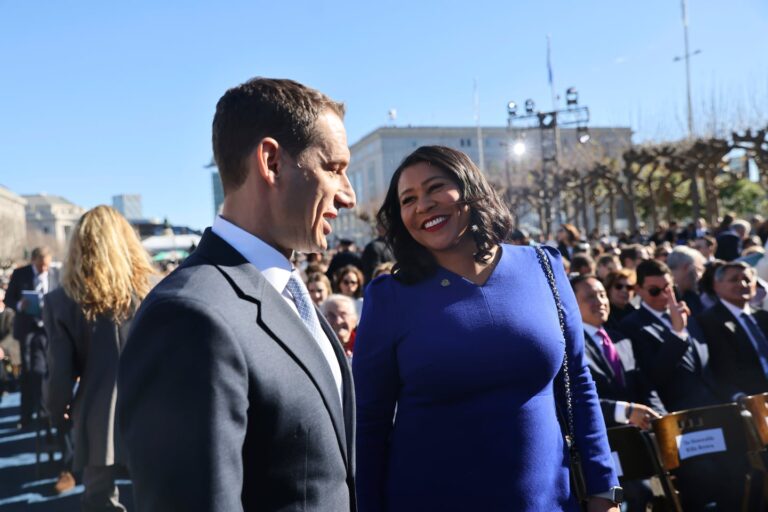Exploring the Political Landscape: Boston vs. San Francisco Mayoral Races
The upcoming mayoral election in Boston presents interesting similarities and contrasts to last year’s race in San Francisco, engaging voters and candidates alike. Mayor Michelle Wu of Boston, known for her progressive agenda, faces a challenge from Josh Kraft, a nonprofit leader and son of billionaire Robert Kraft. This unfolding dynamic mirrors the recent San Francisco election, where a wealthy outsider, Matt Lurie, unseated the incumbent mayor, London Breed, in a city known for its progressive politics.
Lessons from San Francisco
For Kraft, the strategy behind Lurie’s unanticipated victory in San Francisco serves as a potential blueprint. Conversely, Wu and her supporters view this outcome as a warning sign. Key differences separate Boston’s political environment from that of San Francisco. Notably, Breed and Lurie shared more ideological common ground than Wu and Kraft, who represent contrasting interests.
The Factors Behind Lurie’s Victory
Experts who participated in the Bay Area race highlight that Lurie’s triumph was not a foregone conclusion but rather a consequence of a well-executed campaign and a series of fortunate developments. A significant factor was a drop in support for a third candidate, coupled with a scandal involving financial mismanagement within the Breed administration that followed shortly before the election. Moreover, a tragic public safety incident involving a local sports figure further exacerbated voter concerns regarding crime and governance.
Contextual Differences: Boston vs. San Francisco
Boston’s political backdrop is markedly different. As of early 2024, Wu’s approval ratings were significantly higher than those of Breed during the same period in the previous year. Polls indicated that while only 20% of San Francisco residents felt positive about their city’s direction, a strong 57% of Bostonians expressed satisfaction. Additionally, Boston does not face the same acute challenges related to homelessness and crime that San Francisco contends with, which have notably driven political revolts in the latter.
Kraft’s Strategy: Building a Coalition
Despite Wu’s favorable standing, Kraft is strategically positioning himself to attract a coalition of voters. His campaign aims to connect with those who opposed Wu in the past, alongside disillusioned business leaders and diverse communities that he believes are losing faith in her governance. “Lurie’s win proved that incumbent mayors are not invincible,” noted Kraft’s adviser, Will Keyser, indicating a belief that voters may seek change during this election cycle.
The Impact of Incumbency
Incumbency remains a powerful factor in Boston politics, historically providing significant advantages to sitting mayors. Nonetheless, analysts warn that its efficacy could be diminishing, as Lurie’s campaign in San Francisco may illustrate a shift in voter attitudes. According to Todd David, a political strategist, “Michelle Wu should not underestimate voter dissatisfaction,” hinting that her name recognition alone might not secure her reelection.
Financial Considerations and Campaign Effectiveness
Both candidates must navigate the financial implications of their campaigns. Kraft intends to self-fund his efforts, though the extent of his financial commitment is still uncertain. In San Francisco, Lurie’s financial resources allowed him to dominate media presence, a strategy that proved vital as he introduced himself effectively to voters. Conversely, the challenges of being perceived as an out-of-touch elite lie ahead for Kraft, mirroring a hurdle Lurie faced but overcame in his campaign through strategic team hires and targeted outreach.
Timing and Attack Strategy
Strategists note that Wu must capitalize on the time advantage afforded by incumbency. Delayed attacks on opponents could hinder her campaign, as seen in Breed’s late efforts against Lurie. According to Joe Arellano, an adviser from the previous San Francisco campaign, earlier critical narratives about candidate inexperience could have shifted dynamics significantly had they been employed sooner.
Conclusion
As the Boston mayoral race unfolds, comparisons to San Francisco highlight essential lessons for both Wu and Kraft. While certain tactics can prove effective, the unique contexts of each city will shape overall strategies and likely outcomes. The political landscape is dynamic, and voter sentiment can shift rapidly, making this election particularly crucial for both candidates.
Emma Platoff and Niki Griswold contributed to this analysis.



